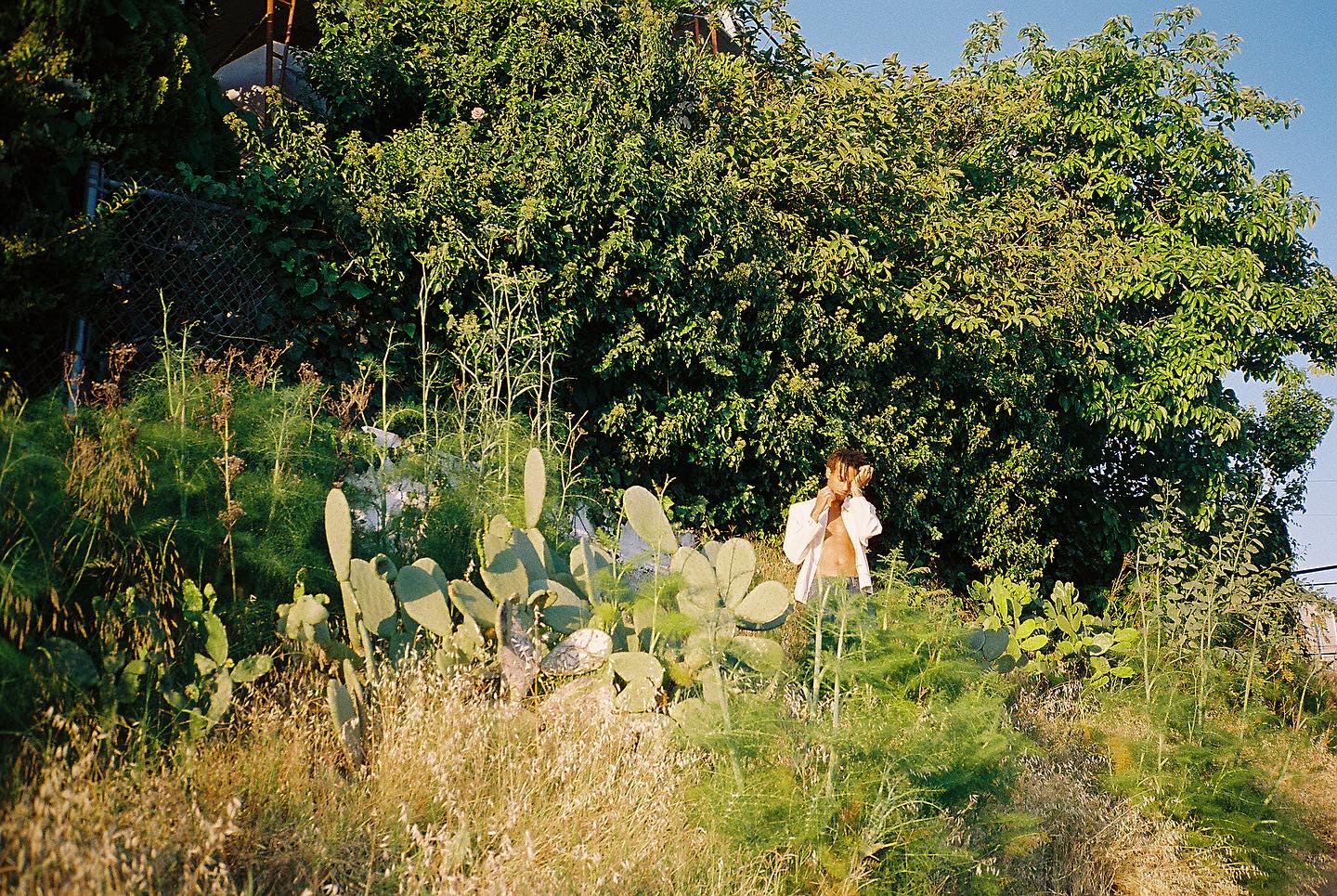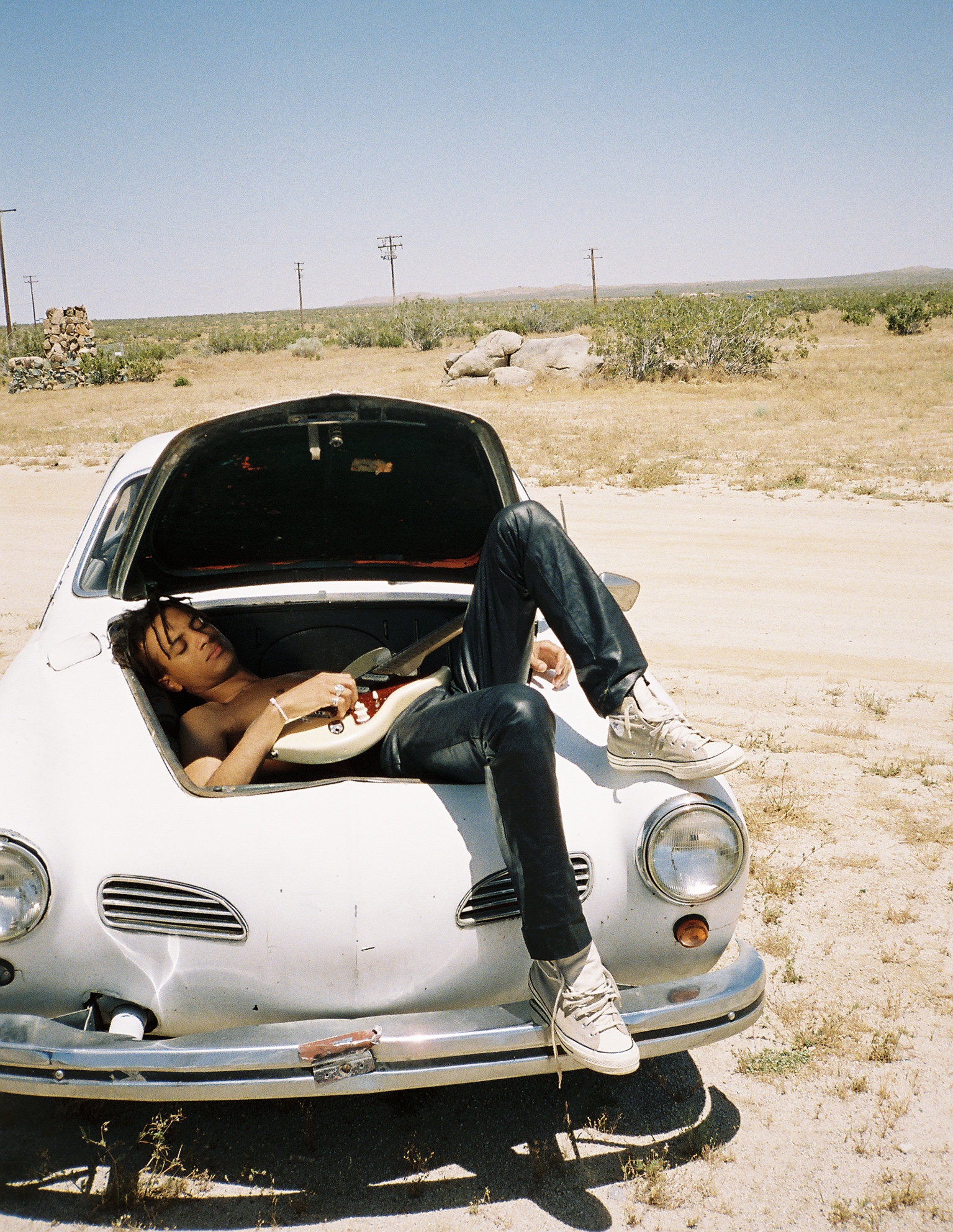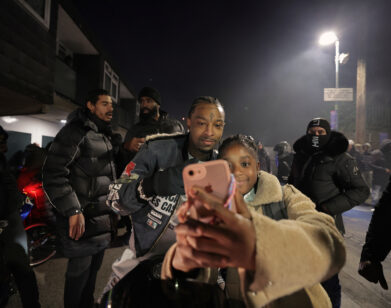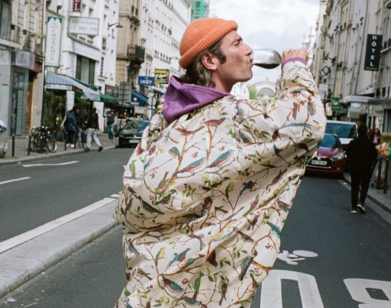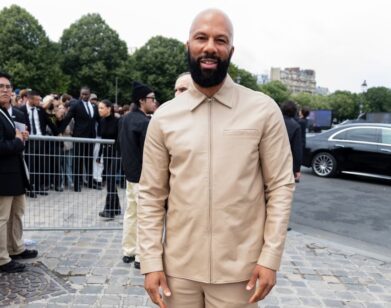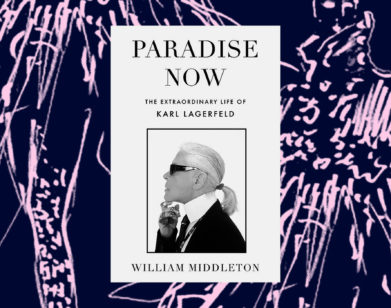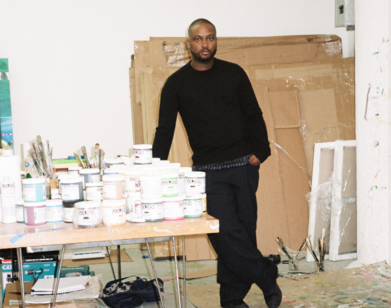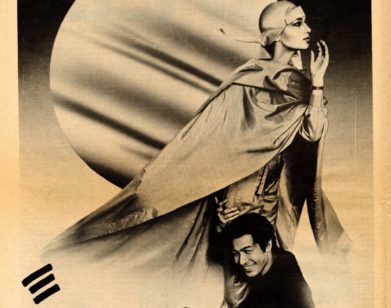IN CONVERSATION
Amalie Gassmann and Tender Kid Discuss Paris, American Boys, and 2021 Goals
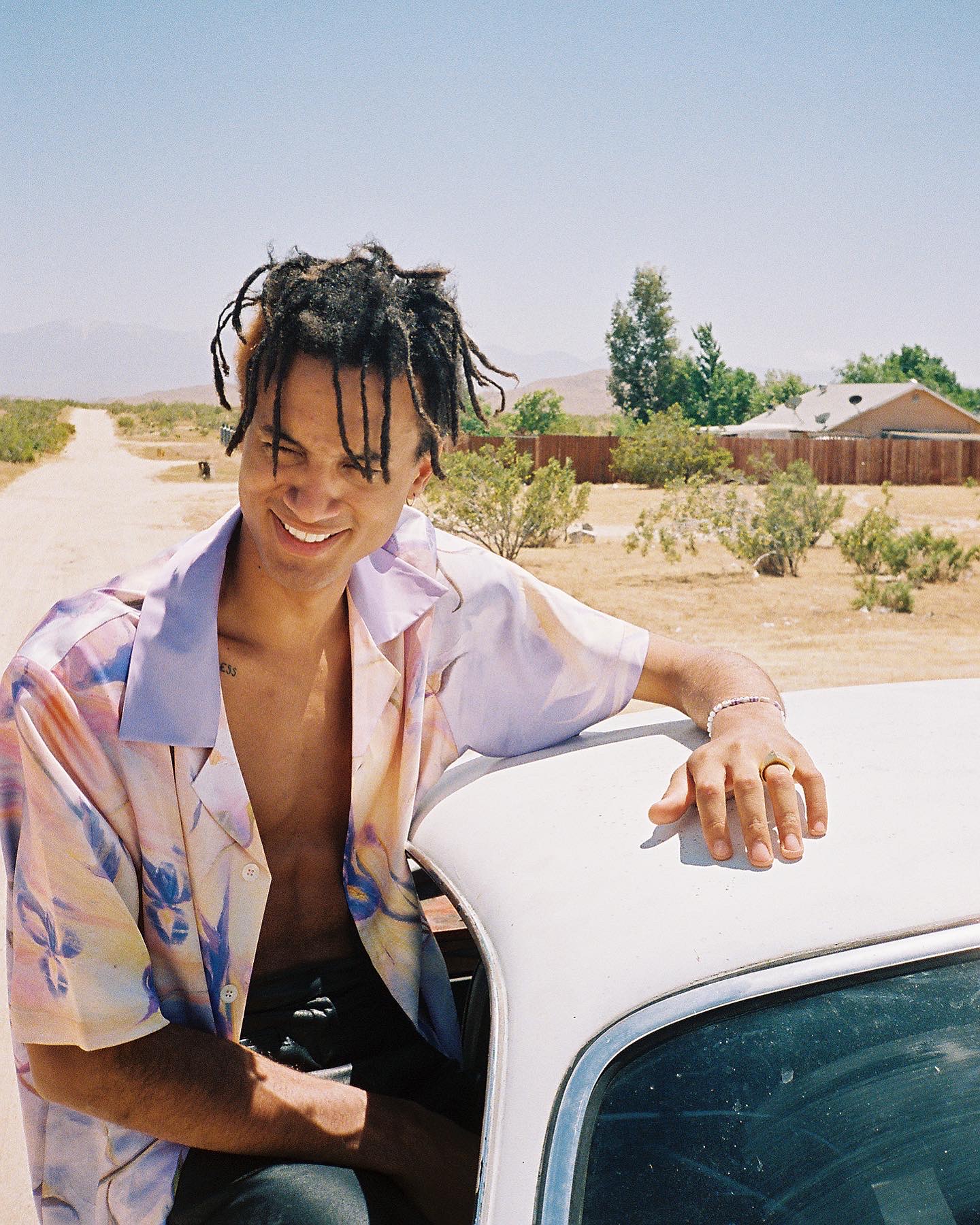
Stills from Amalie Gassmann’s music video, featuring Tender Kid.
What do you do when you get stuck in Los Angeles during a pandemic? In Amalie Gassmann’s case, you make a few short films and music videos with your best friends. Back in June, the young Parisian filmmaker, writer, and creative director released her second short film, Mess is Mine, with original music by her friend, the emerging French/American artist Tender Kid. They recently reunited once again for a sensual music video that fuses three Tender Kid songs, and shows him reckoning with love and life on the road. In honor of this new creative venture, Gassmann spoke to Kid about living in Paris, making the transition to Los Angeles, and what they’re looking forward to in the new year.
———
TENDER KID: How did we meet?
AMALIE GASSMANN: I went to one of your concerts in Paris, remember? My friend Jade is best friends with you, so she brought me to your concert last year. That’s when I first discovered your music and we became friends from there.
KID: Yeah, exactly. Then I think I kind of sneakily filmed you for one of my videos.
GASSMANN: Oh yeah. You did put me in one of your videos that you were doing in Paris with all of your friends. It was a compilation of iPhone stuff. That’s how it really started. Also, it’s great that you speak French. I felt like I gravitated towards you because we knew we were both going to come to the U.S. at some point.
KID: For what was supposed to be a small period of time.
GASSMANN: A small, small trip. I was supposed to be here in March [of this year] for some meetings and move to New York for a couple of months, and you were supposed to be here and do some work, right?
KID: I was supposed to be here for three days to play South by Southwest, and we both got stuck.
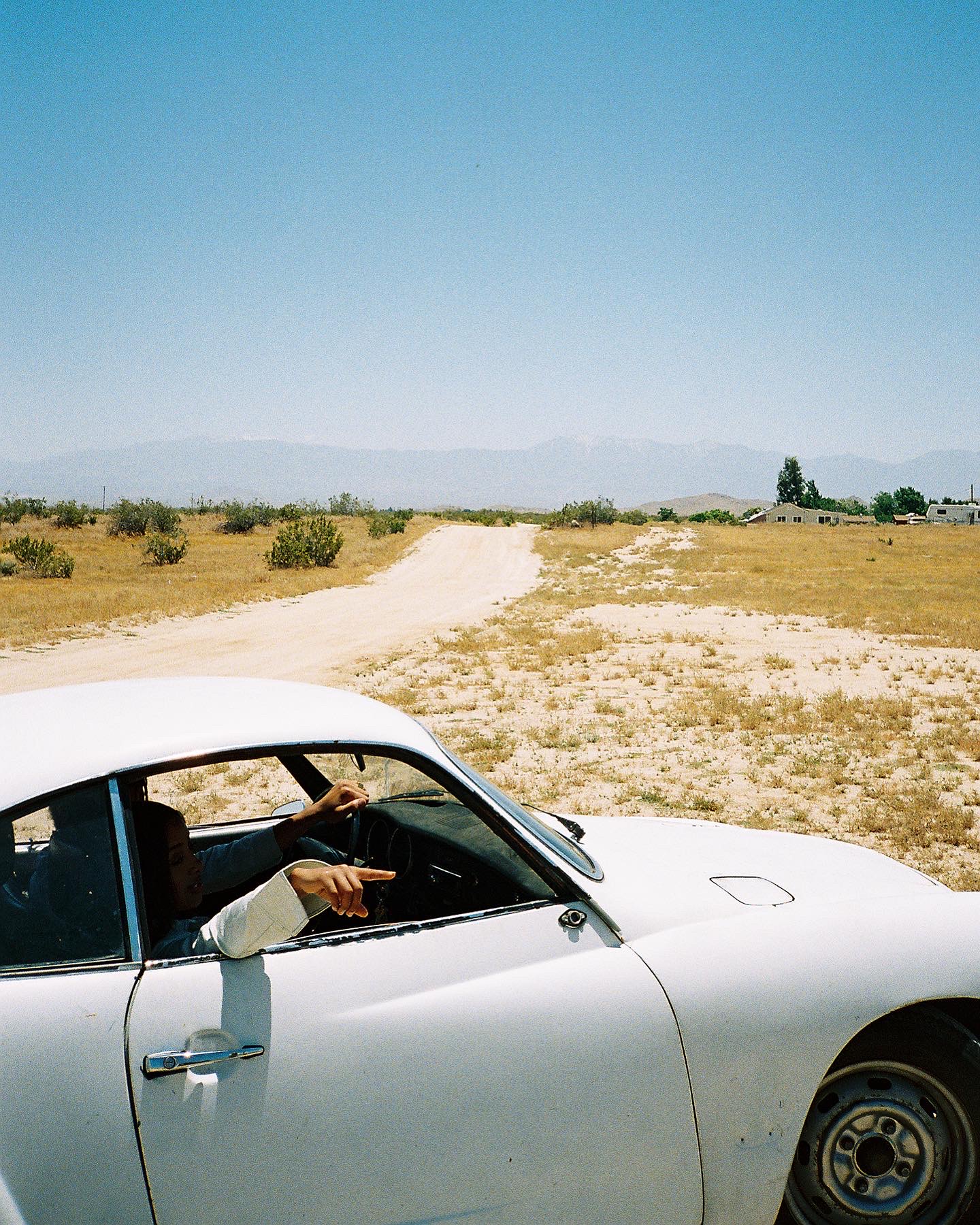
GASSMANN: We got stuck in L.A., so now we’ve officially moved here, I guess. Did you have a culture shock coming here?
KID: It was definitely an adjustment with the people here.
GASSMANN: I feel like the cultures are very different, and they’re both good and bad in their own way. I’m thankful that I grew up in Paris. That’s all I’m going to say.
KID: There’s a lot of talented people here.
GASSMANN: I feel like what we really like about this place is meeting and getting to work with young creatives. Because in Paris, that’s not so much the case, even though it’s supposed to be the center of art and fashion and all of that. I mean, we still have our creatives there.
KID: I feel like it’s a different type of creative in Paris. We have a lot of designers that actually design real clothes and more fine artists. And here there are more photographers and musicians.
GASSMANN: Yeah. Photographers, DPs, editors, musicians, directors, and all that. So we filmed the video back in May and we just wanted to be creative and get out there. It was very small. Just me, you, my DP, and then the extras we used in the video. It was three days, very lowkey. It was just so natural to work together in that way.
KID: It was like a road trip.
GASSMANN: It was a road trip. We went out of the way. We went to Ojai. How do you feel about it now, looking back on it?
KID: I’m so happy we did it and I’m so happy it went the way it did. Initially, we were supposed to film for the song called “Before You Go.” The direction totally changed, which I’m so happy about because I would’ve probably never put out those songs if it wasn’t for you and this movie. Why do you choose to film on a 16, 8-millimeter, and all these different formats?
GASSMANN: I love the challenge of not being able to really see what I shoot. I feel like it’s more authentic and I feel more comfortable with shooting on film. Which is weird, because I just did my first digital project like last week. What have you brought back from your Parisian roots into your music or your aesthetic?
KID: A lot of my Parisian roots in my music are the sonics and perhaps the romance. I feel like American boys have a lack of connection with sentiment.
GASSMANN: Not very emotional.
KID: Yeah, exactly. I feel like coming from France, it’s something that people here really appreciate, the fact that I won’t tell you “I love you” straight away. Most of the guys I know in France go buy flowers.
GASSMANN: They don’t lead them on. That’s why high school was so direct. You see them, you invite them to meet your friends.
KID: Love is not supposed to be stressful.
GASSMANN: Or shameful. I feel like people are so wrapped up in what the perception is going to be, and the pressures of making things official with someone, but they don’t really enjoy the steps to get there.
KID: People say it’s because of Instagram, but I don’t think so. I don’t know one American or guy from L.A. that’s written a letter to his girlfriend, or a song, or a poem. Even just a tiny word in a bouquet of flowers. I find it a little sad, to be honest. I think it’s also from literature. French literature and American literature are very different in terms of sentimentality as well. I think we’re taught romance from a young age. I’ve discovered that in school, they don’t even teach boys what the clitoris is in America.
GASSMANN: Oh, really?
KID: My girlfriend was telling me sex ed is, “This is how you put a condom on.” Whereas in France we have this whole diagram of the uterus. I was taught shibari in school.
GASSMANN: Shibari?
KID: It’s the Japanese art of tying up. We had all these sexual initiations and demonstrations. I feel like here, people are not only not taught how to love, they’re not taught how to have sexual romance either.

GASSMANN: Yeah. They’re just kind of pushed into it. It’s still very hush-hush, even though now people are talking more about sexuality.
KID: Even the way that people are talking in America about sexuality is always very extreme. If you’re a man that likes boys, you’re gay, but if you also like girls, then you’re still gay. I think the keyword is “social pressure” in America.
GASSMANN: I use the human body a lot in my piece. It’s a lot of nude and skin-to-skin, but I don’t overly sexualize it, which I see a lot of. It’s never my point. I just think the female body is beautiful. Even at the beach, you’re half-naked most of the time. There’s not that shame behind it. Also in my work, I have the freedom to do what I want and capture what I want. There’s no pressure. I feel like in your music, there’s so much fluidity and you just experiment. You’re not put into a box, which we got from being in Paris and just being very strong-headed with what we want to do.
KID: Definitely. In France, it’s more like, “Who are you?” rather than, “Okay, so what genre do you correspond to? What box can you fit in? How can we market you?” Get to know me through my art instead of trying to define me before even having any interest in me. How did you meet your partner?
GASSMANN: I’m in a serious relationship, my first-ever relationship. He’s a director as well and he works with a lot of musicians and does music videos and all that. So we were just in the same industry, became friends, and then my quarantine boyfriend.
KID: Do you feel like you guys have learned a lot from each other?
GASSMANN: Yeah, definitely. He’s learned to not be such a workaholic and really enjoy life. I of course want to put in the work and do what I love and stuff, but I also want to sit back. Nowadays you see kids our age and even younger, they’re just like, go, go, go. You need to take a second and enjoy it because you never know what’s going to happen.
KID: I just recently learned that. I broke my phone three weeks ago, and for a week I didn’t have my phone. I didn’t feel one ounce of depression when my phone was broken. I was just so freed. I think if you have a phone, there’s no way that you’re not going to work.
GASSMANN: You have a constant to-do list. This break gave me a little more perspective, but I’m still like, “Okay, I’m going to get back into it.” And what about you? What about your love life, Sylvain?
KID: Well, since I moved to L.A., it’s been kind of a rocky road, to be honest. I met this first girl, who was part of my decision to stay actually. And I was madly in love with her, introduced her to everyone possible, and again, there were the games. And then I met this other girl through you, but there’s this whole notion of “love comes second in L.A.,” which I’m not familiar with. “Work comes first and then love comes second.” Which I don’t fuck with. So that kind of didn’t go anywhere. And recently I’ve met my partner, who moved in with me, in my uncle’s corridor. We’d bump into each other every morning and have a small chat, and then I discovered she is a musician as well. She loves coffee, I love coffee. She doesn’t mind me smoking cigarettes. I really started liking her when she played me her music and it wasn’t trash.
GASSMANN: There you go. The whole package.
KID: It wasn’t terrible. I feel like being a creative in L.A., it’s very important to be with someone whose work you admire. It’s very tough to be with someone that doesn’t do art to a level that you think is respectable. This year, I’m just looking forward to enjoying work and life with the best people I’ve been around with for a minute.
GASSMANN: I feel like we both built a good creative community here in L.A., even though we’re from Paris. It’s always really scary to go to a new spot, but I feel like we’ve adapted pretty well. I’m so thankful to be able to make videos and work with such great people and friends that I admire. And I really want to showcase their music in the best way. So in the new year, I just want to keep working with amazingly talented people and collaborating and meeting. It’s all about the relationships you make and the art you make. Nothing too big. I just want to keep working and creating.
KID: And drink a lot of wine.
